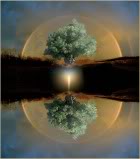Heidekolb's Blog
In the Beginning there was the Word ~ C.G.Jung-The Red Book Reflections
11 Comments
I am not a great believer in words..but I guess the more people believe in words the more powerful they can be.. (thank you Mona K). I came across these words in my twitter stream just as I pondered Jung’s imaginal encounter with “the Anchorite” in the Red Book (RB), in which the two of them discuss the meaning of words.
We are shaped by the spoken and, to even a greater degree, by the written word.

The Anchorite (an inner, imaginal figure) speaks to Jung: “Surely you know that one can read a book many times – perhaps you almost know it by heart, and nevertheless it can be that, when you look again at the lines before you, certain things appear new or even new thoughts occur to you that you did not have before”.
What is suggested here is to appreciate the “word” as a symbol and not as a sign with a definitive, unmovable meaning. A symbol is a door into the unknown and language, the word, can be such a portal. We all the know the power of poetry or of a book that transported us into another world. A good piece of writing can take us to very unexpected places, if we allow it to happen. “A succession of words does not have only one meaning. But men strive to assign only a single meaning to the sequence of words, in order to have unambiguous language”, the Anchorite proclaims.
Like a tightrope walker we are asked to perform a delicate balancing act.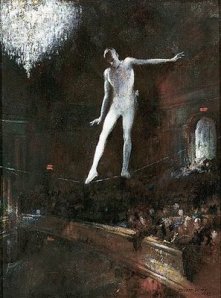 Words and language allow us to grasp and assimilate the nature of reality. It is hard to detach the word from human consciousness. “What was word, shall become man. The word created the world and came before the world. It lit up like a light in the darkness“, Jung writes. He also says that “this striving is worldly and constricted” and the mysterious addition that this striving “belongs to the deepest layers of the divine creative plan”.
Words and language allow us to grasp and assimilate the nature of reality. It is hard to detach the word from human consciousness. “What was word, shall become man. The word created the world and came before the world. It lit up like a light in the darkness“, Jung writes. He also says that “this striving is worldly and constricted” and the mysterious addition that this striving “belongs to the deepest layers of the divine creative plan”.
Initially the limited, narrow range of meaning provides security. We need to believe the illusion that we know what is what. Jung writes, “the unbounded makes you anxious since the unbounded is fearful and humanity rebels against it”.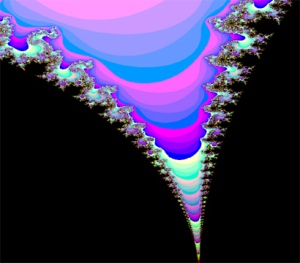
The paradox: We must build walls of meaning in order to emerge as conscious beings out of the chaos, but then these very walls must be broken down, because “words should not become Gods”.
One way of measuring ego-strength and maturity of personality is to assess a person’s capacity to tolerate ambivalence. This capacity is closely related to the ability to feel empathy. It is all about tolerating otherness. Empathy is the genuine ability to see the world through the eyes of another. Another who is truly different, someone who cannot be easily understood. It takes effort (and ego-strength) to make room for another standpoint, another meaning. There are many ways to be right. We have reached maturity when we can give up tour need to be right without losing ourselves and our values.
Imagine ~ making room ~ imagine that the entire universe is within you and every person, every other living creature is a parallel universe ~ no either/or, no right or wrong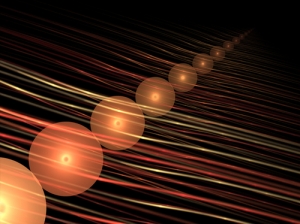
“He who breaks the walls of words overthrows Gods and defiles temples”, Jung writes. We need to break down the prison of stale and empty words. We need to dismantle inherited belief systems, which have lost the spark of life. We need to give up the delusion that a word in itself represents truth. It does not matter whether the word is in the Bible or in another writing considered sacred, in your favorite novel, on the internet or in one of our ingrained thought patterns. The word may give us temporary security. That may be necessary for some time. But the evolution of consciousness cannot be stopped, it can only be resisted, which makes it harder. The evolutionary trajectory of life pushes us towards new meaning. Meaning full of juicy freshness and uniquely individual. This is what Jung’s entire life’s work was about. But this encouragement comes with a warning. Jung writes: “But no one should shatter the old words, unless he finds the new word that is a firm rampart against the limitless and grasps more life in it than in the old word”. We find this over and over again in Jung’s work. Jung who parted ways with Freud, because he believed that the unconscious did not only need to be tamed, but was also the source of rejuvenation and great treasures, was also acutely aware that its forces were so powerful that it could sweep us into the chaos of psychosis at any time.
The word is a container and a prison. We need to find the balance on the tightrope. Words, stories, narratives create our lives. As we grow, our stories, memories and narratives can change. Are our narratives, the way we think about ourselves still true? Are they still meaningful in the sense that light and life are pulsating through them? Or do they need to be shed like a serpent leaves its old skin behind? Nothing is forever. We are always becoming.
Nothing is forever. We are always becoming.
On Samhain, Archetypes and Psyche’s Experience of the Nurturing Darkness ~ The Red Book Reflections
11 Comments
Every year I lament the end of summer. Until about this time of the year, when I can sense a major shift of energy. Darkness is settling in. There are so many shades of darkness. I will single out one for today. It is the shade that belongs to Samhain, one of the great doorways into the dark.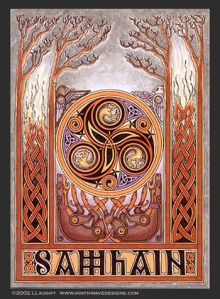 Tradition has it that the veil between the upper and the lower worlds is the thinnest on the night of October 31 to November 1st. It is a night of welcoming and honoring the dead. In the old days it was a time of divination and communication with the spirit world. It is the beginning of the new year, because the Celts appreciated that new life begins in utter darkness. Although originating in the pre-Christian Celtic tradition, Samhain belongs to all people who are open to the cycles and movements of nature.
Tradition has it that the veil between the upper and the lower worlds is the thinnest on the night of October 31 to November 1st. It is a night of welcoming and honoring the dead. In the old days it was a time of divination and communication with the spirit world. It is the beginning of the new year, because the Celts appreciated that new life begins in utter darkness. Although originating in the pre-Christian Celtic tradition, Samhain belongs to all people who are open to the cycles and movements of nature.
Let us understand the meaning of Samhain from a Jungian psychological perspective. Maybe because our culture has lost the connection to the natural and nurturing aspect of the dark, we are currently so terribly dominated by the devouring and destructive side of it. The darkness of Samhain is of an introspective, reflective nature. Qualities our dominant culture is not supporting. Imagine, letting go of all the noise, the distractions. Imagine, allowing yourself t be alone ~ with yourself, only your breath leading the way.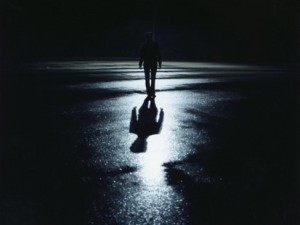 All fears and resistances belong to the ego, which initially refuses to acknowledge the existence of another realm of reality. The natural world knows no such fears. Imagine, walking into the darkness of not yet knowing ~ and listening, and seeing.
All fears and resistances belong to the ego, which initially refuses to acknowledge the existence of another realm of reality. The natural world knows no such fears. Imagine, walking into the darkness of not yet knowing ~ and listening, and seeing.
The dead come to visit in this night, it is said. They may come with messages or they simply need us to acknowledge their existence. The knowledge, but also the sins and wounds of our ancestors live within us. This is a psychic fact that C.G. Jung very much understood. Psychic life, the life you and I know and experience, emerges out of and continues to be embedded in an archetypal field. Archetypes are ultimately unknowable but very specific patterns of energy which we experience as images and affects. Our relation to the archetypal world connects us to our ancestral history, including our animal and microbial past. Yes, that far back can psyche reach. An archetype is like an old watercourse along which the water of life has flowed for centuries, digging a deep channel for itself, Jung writes. If we manage to quiet the chatter within us, then the world of the forgotten past within us will be at its most available tonight, according to the tradition of Samhain.
If we manage to quiet the chatter within us, then the world of the forgotten past within us will be at its most available tonight, according to the tradition of Samhain.
But we do not have to peer that far. In the shadow that we carry are also all the traumas, wounds and unresolved issues of our recently deceased relatives, parents and grandparents. I have learned (thank you Malidoma Some : ) that the departed souls of our relatives need us as much as we need them. There is a unique power of healing that only our waking consciousness can generate. Some of us are plagued with psychological disturbances, which we have psychically inherited from those close to us who have died. Every unresolved trauma or other unresolved psychic issue is passed on from one generation to the next, until the chain is broken. Breaking the chain means bringing the dark into light, making what has been unconscious conscious. That is the job of the living and only we can do that. That is our purpose in life.
Jung writes in the Red Book (RB) “If you live your own life, you do not live the common life, which is always continuing and never ending, the life of history and inalienable and ever-present burdens and products of the human race”. Before we can become who we are meant to be, before we can live our own life, we must descend into the shadow left by those who have gone before us.
If we surrender to the natural movement of the soul, we can and must bring forth pieces of the personal and collective unconscious that need to come into the light. This is growth. This is healing. This is becoming.
The sheer beauty of Jung’s writing in the RB shines forth in this quote and elucidates this thought. See it, hear it with your senses open to the ever-present symbolic reality: ” As a drop in the ocean you take part in the current, ebb and flow. You swell slowly on the land and slowly sink back again…you wander vast distances in blurred currents and wash up on strange shores, not knowing how you got there. You mount the billows of huge storms and are swept back again into the depths….You had thought that your movement came from you and that it needed your decisions and efforts….but with every conceivable effort you would never have achieved that movement and reached those areas to which the sea and the great wind of the world brought you..
From endless blue plains you sink into black depths; luminous fish draw you, marvelous branches twine around from above. You slip through columns and twisting, wavering, dark-leaved plants, and the sea takes you up again in bright green water to white, sandy coasts, and a wave foams you ashore and swallows you back again, and a wide smooth swell lifts you softly and leads you again to new regions, to twisting plants, to slowly creeping slimy polyps, and to green water and white sand and breaking surf.”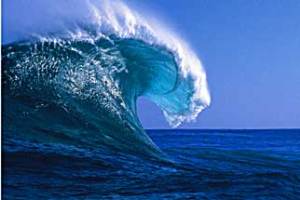
At Samhain the veil may be the thinnest, but the work of connecting to the ancestors, of acknowledging the archetypal realities is not over when this sacred night has passed. But it could be the beginning of a new attitude.
Samhain has turned into Halloween. We have learned to slip into a disguise, so we are not recognized by the wandering “evil” spirits. But maybe we want to remember some of the old ways and honor the dead. As Jungian warriors we may want to sit quietly and reflect on what has died within us, what traumas have we inherited from our personal and collective ancestors. What is it in our lives that needs to be faced and owned? Who are the hungry ghosts in our soul? How can their energy be released and transform in the light of consciousness?
Sit quietly ~ there is work to be done on your journey of becoming and it begins in the darkness of this night.
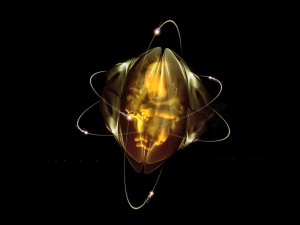
A Blessed Samhain to All
For all new life forms in the dark.
A Glimpse into the Labyrinth of Relationships ~ C.G.Jung ~The Red Book Reflections
7 Comments
At times relationships can feel like a nightmarish war zone.  Whether the bond is romantic or sexual does not matter. Nor is it of any significance whether the partner is of the same or opposite sex. What matters is whether the “other” got under your skin. You know it when you feel it. An attraction, an affinity, a blissful roller coaster which can quickly break down all the coping strategies of a carefully created and nurtured persona. At times it may feel like madness knocking. That is not what we had in mind when we opened ourselves to another! Needs and emotions we never thought we had are gushing out of us. We may then find ourselves at a crossroads, though initially the choice of way is hardly in our control.
Whether the bond is romantic or sexual does not matter. Nor is it of any significance whether the partner is of the same or opposite sex. What matters is whether the “other” got under your skin. You know it when you feel it. An attraction, an affinity, a blissful roller coaster which can quickly break down all the coping strategies of a carefully created and nurtured persona. At times it may feel like madness knocking. That is not what we had in mind when we opened ourselves to another! Needs and emotions we never thought we had are gushing out of us. We may then find ourselves at a crossroads, though initially the choice of way is hardly in our control.
One thing that might happen is that all our defenses kick in and we regain what feels like ground under our feet. The inner whirlwind of affect is warded off ~ at the cost of our soul’s longing for a true connection to the inner other. The notion that there is an inner other, imaged and personified as a being of the opposite sex is at the core of Jungian thought. At first the ego knows nothing about this dynamic. But psyche needs to become conscious of herself. This evolutionary push towards consciousness is archetypal, it simply is. If we resist it, we will be dragged along, kicking and screaming and raging at the world. If we accept this archetypal urge towards consciousness, we can learn to breathe through the ride, as bumpy as it may be. Jung expresses this notion of the inner other in the Red Book (RB) as follows: “You, man, should not seek the feminine in women, but seek and recognize it in yourself….you, woman, should not seek the masculine in men but assume the masculine in yourself”.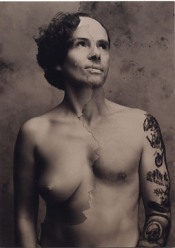 Psyche is bisexual. This is entirely unrelated to our sexual identifications. How do we then learn about the other within us? We unconsciously put (project) our unknown self onto another person. What we experience when these dynamics are enacted is a strong emotional reaction to another person. We might be irritated, repulsed, ticked off, but mostly, for better or worse, we might fall in love.We cannot help it because, as Jung says, “You are a slave of what you need in your soul”.
Psyche is bisexual. This is entirely unrelated to our sexual identifications. How do we then learn about the other within us? We unconsciously put (project) our unknown self onto another person. What we experience when these dynamics are enacted is a strong emotional reaction to another person. We might be irritated, repulsed, ticked off, but mostly, for better or worse, we might fall in love.We cannot help it because, as Jung says, “You are a slave of what you need in your soul”.
Let us consider the other direction at our crossroads. No doubt the less comfortable one, as the soul’s way always is. Welcome to our brave soul’s battle in her adventure of connecting to spirit. Because ultimately it is through the contrasexual archetype that the world beyond ego, the transpersonal, spiritual dimension opens up to us. “The part that you take over from the devil – joy -leads you into adventure”. How might one read this statement in the context of relationships? I opt to offer the following: to not resist the pull of your emotions, to make room for your love and hate and all the shades in between them, without allowing the emotional storms to take over. Not to be overtaken is often the hardest part and may require practice and support. Most important, however, is to never lose sight that while our attention is entirely hooked on the other person, we are always exploring and learning about ourselves. We are always reaching for and touching on an aspect of ourselves in the other.
Because ultimately it is through the contrasexual archetype that the world beyond ego, the transpersonal, spiritual dimension opens up to us. “The part that you take over from the devil – joy -leads you into adventure”. How might one read this statement in the context of relationships? I opt to offer the following: to not resist the pull of your emotions, to make room for your love and hate and all the shades in between them, without allowing the emotional storms to take over. Not to be overtaken is often the hardest part and may require practice and support. Most important, however, is to never lose sight that while our attention is entirely hooked on the other person, we are always exploring and learning about ourselves. We are always reaching for and touching on an aspect of ourselves in the other. 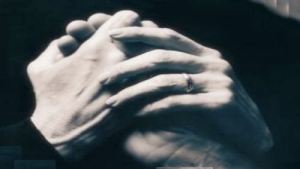
Jung allows us a glimpse into the awkward and raw experience of his soul’s journey towards his feminine side. Writing from a man’s perspective in general and his own very private, subjective one in particular, Jung notes: “It is bitter for the most masculine man to accept his femininity, since it appears ridiculous to him, powerless and tawdry”. A woman’s experience will be different, but in most cases she will also struggle with her acceptance of the masculine within herself. This is when love can turn into hate. Because “he” is so dominant, so controlling, so violent, so insensitive etc. “He” may be all of that but these qualities may lie dormant in the woman’s psyche, unbeknown to her, but usually experienced by others. “The feminine in man is bound up with evil…..the masculine in the woman is bound up with evil”. Not an easy statement to swallow, “Therefore people hate to accept their own other”, Jung continues. The darkness of what we experience as evil feels too much to own and therefore needs to be projected on the one we are close. Remember a time when the one you loved turned into a monstrosity? I do.
“But if you accept it….that when you become the one who is mocked the white bird of your soul comes flying. It was far away but your humiliation attracted it” Jung writes. Only then can we claim to be a complete person. Only then can we venture into relationship. On one hand a relationship into the amoral world of the archetypal cosmic psyche and the other hand into a fully fleshed out relationship with another person. Only then may we be able to see and love the person for who they are.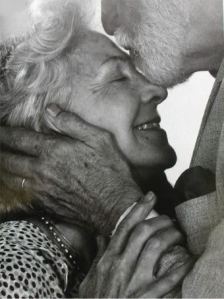
Oh yes, said Eve to the serpent, lead me into temptation. For I want to know.
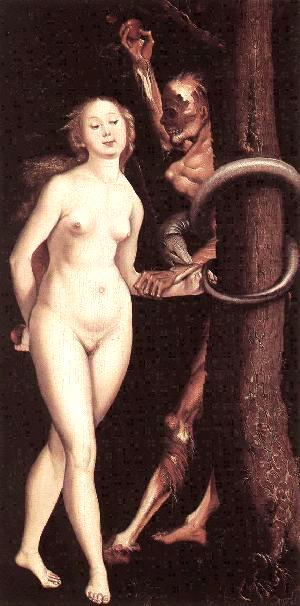
Tags: C.G. Jung, Depth Psychology, emotions, eros, feminine, hate, love, madness, masculine, psyche, relationships, soul, spirit, The Red Book
Of John Lennon, Oil Spills and other Evils ~ The Red Book Reflections ~ C.G.Jung
12 Comments
Jung insisted that context is everything. He was right about that. In an inter-connected reality, every “truth” must be understood within its particular set of circumstances. It is only with this appreciation that I dare approach what could be otherwise construed as an inflammatory and outrageous statement.
Jung writes in the Liber Primus of the Red Book (RB) that “it is good if you want this greatest evil with your whole heart” (p.254). When Jung was writing this the horrors of the First World War were raging through Europe. In a footnote a Nietzsche quote from “Thus spoke Zarathustra” sheds some light: “To redeem the past and to transform every ‘It was’ into a ‘I wanted it thus’ – that alone do I call redemption”.
In a footnote a Nietzsche quote from “Thus spoke Zarathustra” sheds some light: “To redeem the past and to transform every ‘It was’ into a ‘I wanted it thus’ – that alone do I call redemption”.
Jung’s point is a call to claim ownership for the events in the world. War may be instigated by a handful of sociopaths, but if their war cries did not find resonance in the collective psyche, war would not happen. “War is over…if you want it”, John Lennon declared a few decades ago. Some may regard this comment as utopian or naive, I see it as congruent with Jung’s point.
A few years ago I lamented the Bush presidency in this country, when a friend pointed out that we the people have the kind of president we deserve. We did, whether we voted for him or not. Oh & on that note, John Lennon also said “If everyone demanded peace instead of another television set, then there ‘d be peace”.
As long as we don’t come to terms with destructive and “evil” tendencies within ourselves, as long as we choose to let these dragons slumber in the underworld of the unconscious, they will remain out of reach of our conscious awareness and therefore will NEED to be projected onto whoever lends himself to act out our rage, greed and will to power. These are archetypal affects, to deny that they are not in you, now that would be truly naive.
But war has not been so much on my mind lately. (It is still raging in various parts of the world, I know). Oil gushing into our ocean has preoccupied me. I cringe imagining the pain and suffering to wildlife. Make no mistake, I loudly demand that those responsible for the mess and mismanagement be held accountable and rightly so, I maintain. But is there not another side? Is not anyone who has ever owned a car or owned some stocks implicated in the rush for the black gold? I know, the notion of interconnectedness may suddenly not feel so cozy anymore. The subtler reality is that we are all responsible. We are participating in the killing of the earth. We are puncturing an artery in our mother’s body (thank you SVE13), her thick, dark life-blood turning into poison.
Make no mistake, I loudly demand that those responsible for the mess and mismanagement be held accountable and rightly so, I maintain. But is there not another side? Is not anyone who has ever owned a car or owned some stocks implicated in the rush for the black gold? I know, the notion of interconnectedness may suddenly not feel so cozy anymore. The subtler reality is that we are all responsible. We are participating in the killing of the earth. We are puncturing an artery in our mother’s body (thank you SVE13), her thick, dark life-blood turning into poison.
The alchemists gave oil a unique symbolic role. It is present at the beginning and end of life. Crude oil is an image of the primal chaos which at this time is still spouting uncontrollably forth. 
Jung writes: “If you do not succeed in producing the greatest evil….you will never learn the violent deed and learn to overcome fighting what lies outside you…….If blood, fire and the cry of distress fill this world, then you will recognize yourself in your acts….May the frightfulness become so great that it can turn men’s eyes inward, so that their will no longer seeks the self in others but in themselves….You cannot learn this, it can only develop in you. You cannot will (italics mine) this, it takes the will from your hand and wills itself ” (RB, p.254).
The eternal paradox. The psychic demand to let a natural evolutionary development take place, to surrender and self-sacrifice (from the ego’s perspective) and yet to be active and participating citizens of this world. Your way of life is a political statement, John Lennon remarked.
James Hillman echoes similar ideas when he writes :“Today we need heroes of descent, not masters of denial, mentors of maturity who can carry sadness, who give love to aging, who show soul without irony or embarrassment”. All three voices conjured up here, deplore us to not only point fingers but accept our role in a divine drama, that indeed we are the world.
“But fundamentally you are terrified of yourself, and therefore you prefer to run to all others rather than to yourself”, Jung writes. The Hopi elders were quite right when they urged us: “You are the ones you were waiting for “.
We are the ones who need to claim the beauty and the terror. We are the beauty and the terror.

Tags: alchemy, Analytical psychology, C.G. Jung, Depth Psychology, James Hillman, John Lennon, Nietzsche, Oil spill, soul, The Red Book, war
Ariadne and the Minotaur ~ Love,Trauma & Abandonment ~ A Jungian Perspective
8 Comments
Sometimes I feel like Theseus. A Greek warrior hero who, according to the Greek myth, slew Ariadne’s half-brother. Ariadne was the daughter of King Minos on Crete, but her lineage points to Zeus as her grandfather and in effect Ariadne, the Mistress of the Labyrinth may have been a personification of the great Minoan Snake Goddess. Ariadne’s half-brother, the Minotaur, was a fabulous monster with the body of a man and the head of a bull who was shunned and confined in the labyrinth.
Ariadne’s half-brother, the Minotaur, was a fabulous monster with the body of a man and the head of a bull who was shunned and confined in the labyrinth. Who or what is this Minotaur?
Who or what is this Minotaur?
The bull in mythology is a companion of the Goddess in matriarchal societies. In Ariadne’s myth the minotaur was conceived by her mother’s mating with Poseidon’s sacred white bull. Historically the myth depicts a time when the power of the Goddess was waning as patriarchal forces began to dominate and shape culture and beliefs. Mythological creatures like the minotaur were outside the conventional bounds of norm and reason, so highly valued by the newly emerging masculine paradigm.
Psychologically the devaluation of the feminine equals the denigration of the irrational and the imaginal, forces that belong, in modern language, to the unconscious. Like the minotaur, neither human, nor animal nor god, the imaginal is locked away, waiting to be killed off by a heroic rational stance, personified in the myth by Theseus.
Sometimes I feel like Theseus. When I disregard what really matters, when I evade what seems ugly, vulnerable, too much to bear within myself and others. We all are Theseus when we get dangerously close to an enormous rage at the center for having been torn out of the matrix of Oneness, when the trauma of life makes us brittle on one hand, yet awfully “heroic” in our determination to slay the dragons & minotaurs that plague us.
Freud thought that all of life was about mourning our losses, culminating with the loss of our closest friend, our body, at the moment of physical death. No doubt there are happy & blissful moments even periods in our lives, but the losses outweigh them for most of us. If we allow the feeling to come up. If we allow ourselves not to slay the ugly minotaur. Just think of the loss of youth, of health, of hopes and dreams, the loss of people you loved, the loss of country and home in times of war and natural catastrophes…the list goes on.
Life is traumatic, even without the most blatant traumatizing events such as rape or torture. That “God is a trauma” is an often quoted notion in Jungian thought. Jung says “To this day “God” is the name by which I designate all things which cross my path violently and recklessly, all things which upset my subjective views, plans and intentions, and change the course of my life for better or worse”. And let us be clear, when Jung writes about God he describes immediate experiences and never some being in the sky or some entity. “The force of of God is frightful” Jung writes in the Red Book, and this force is within us and we have to come to terms with it.
A deep seated trauma most of us share is abandonment. Being betrayed right from the start. Being born into a world that is not welcoming. Being born with a soul that remembers wholeness, but cannot find it in lived life. A soul that is subjected to terrible suffering if she does not remember her way back to the source of her belonging.
Sometimes I feel like Ariadne. Ariadne fell deeply in love with Theseus. Without her help he could not have slain the minotaur. It was she who provided Theseus with a sword to kill and a thread to find his way back out of the labyrinth. An interesting scenario, the (humanized) goddess is willingly assisting in the killing of her half-brother, an image of an instinctual aspect of herself. We can wonder together, if this self-betrayal is in the service of evolution or a terrible error out of misguided love.
An interesting scenario, the (humanized) goddess is willingly assisting in the killing of her half-brother, an image of an instinctual aspect of herself. We can wonder together, if this self-betrayal is in the service of evolution or a terrible error out of misguided love.
Theseus and Ariadne elope together after the murder of the minotaur. But shortly after Ariadne is abandoned by Theseus who “had no joy of her” as Homer tells us. He left her alone on the island of Naxos and set sail without her. It has been speculated that at the moment Theseus raised his sword to kill, he recognized his shadow self in the minotaur and became aware of the magnitude of his deed.
Ariadne was left behind, betrayed, abandoned, devastated. All the psychological experiences of trauma. She had betrayed herself first and then was betrayed by the one she loved. A classical woman’s story in a patriarchal world. But the tide is turning again in the dance between masculine and feminine. Women must stand firm and remember their soul’s truth and men must soften and listen. For “Man and woman become devils to each other if they do not separate their spiritual ways, for the essence of creation is differentiation”, Jung writes in the Red Book. Only this differentiation will make a genuine union possible.
Granted there are many versions of how the myth of Ariadne continues, but in most versions the god Dionysus came to the rescue. Dionysus, the god of madness and ecstasy, ruler of the irrational, always close to the feminine came to take her as a bride and they joined the gods on Mount Olympus.
What is the myth telling us here? Why is Ariadne rescued by Dionysus? Betrayed she may have, but she stayed true to her love and passion, something Dionysus will always honor. We may suffer and be left alone and feel like fools, but at the end of the day, when we look in the mirror, the question will always be, “How much did we love?” And at the end of our lives, when we look in the cosmic mirror, the question will always be, “How strong was our love? How much courage did we have to live our love?” May we be prepared to answer these questions one day.
We may suffer and be left alone and feel like fools, but at the end of the day, when we look in the mirror, the question will always be, “How much did we love?” And at the end of our lives, when we look in the cosmic mirror, the question will always be, “How strong was our love? How much courage did we have to live our love?” May we be prepared to answer these questions one day.
Hail Ariadne!
On Jungians, Solstice and the Death of the King – The Red Book Reflections. C.G.Jung
2 Comments
 The publication of the Red Book (RB) has rekindled much interest in Jung and his world. People are fascinated with its imagery and often inexplicably moved by it. What is it about this book? Many people feel its soulfulness, literally, when they first hold it in their hands. The Red Book is in the truest sense of the word awesome. But what to do other than admire it? Who has access to Jung’s at times elusive knowledge? Is it only the world of Jungian analysts who inherit Jung’s world? That would be terrible. Jung would abhor that thought.
The publication of the Red Book (RB) has rekindled much interest in Jung and his world. People are fascinated with its imagery and often inexplicably moved by it. What is it about this book? Many people feel its soulfulness, literally, when they first hold it in their hands. The Red Book is in the truest sense of the word awesome. But what to do other than admire it? Who has access to Jung’s at times elusive knowledge? Is it only the world of Jungian analysts who inherit Jung’s world? That would be terrible. Jung would abhor that thought.
Are those who have experienced an in-depth Jungian analysis his rightful heirs? Maybe. There is a lot to be said about working closely, intimately with someone who has walked the walk before. There are plenty of wonderful Jungian analysts out there. But unfortunately psychoanalysis has been assimilated by the medical model and has lost, by and large, its connection to soul. It is a shame. Psychology is the science of the soul, but it has deteriorated into a mere management of symptoms for the most part. Mainstream psychology has forgotten that symptoms are messages from the soul.
Jungian work is soul work. There may be other ways than the traditional route. Jung did not want us to emulate him. Psychoanalysis was originally conceived as a new “Weltanschauung, a new world view, a new way of experiencing reality. Jung was particularly interested in rescuing the soul out of the clutches of what he experienced as a stifling dogmatic Christianity.
In the book “Who owns Jung?” ( by Ann Casement), the analyst Joe Cambray answers the question with “the one who emerges from Jung”. What does emerge for you out of an encounter with Jung? Where does Jung take you? What does Jung mean to you? When we look for meaning we get in touch with the soul.
Jung held on to his soul. He held on to his longings and his felt sense of wonder beyond the visible world. He held on to his visions outside the world of reason. He maintained an unwavering trust in her. “My path is light” his soul says and Jung answers in his vision, “Do you call light what we men call the worst darkness?” “I have become a monstrous animal form for which I have exchanged my humanity”, Jung reports from the same vision. His trust is tested to the brink. He becomes angry at his soul.
I wonder if anyone has ever experienced that when trying to be truthful to oneself, following one’s path, one ends up in a spot where one did not want to be at all? When self-reflection only conjures up accusatory self attacking images? How can one have trust, faith, in an elusive guidance from the invisible world that has lead one so astray? The rational mind will say that one has lost it, one may feel insanity knocking on one’s door. Jung did. “My thoughts were murder and the fear of death spread like poison everywhere in the body” Jung writes. He knows a murder needs to be committed.The king must die, long live the king.
Jung relives here the archetype of the year king. A cyclical life-death-rebirth deity that represents a pattern of creation and renewal in nature. The king that needed to die was Jung’s idea of reality . “So the reality is meaning and absurdity”, he realizes, and he captures the circling movement of the archetype of the year king as it enters his consciousness with the following words: “Noon is a moment, midnight is a moment, morning comes from night, evening turns into night, but evening comes from the day and morning turns into day. So meaning is a moment, and a transition from absurdity to absurdity, and absurdity only a transition from meaning to meaning.”
The task is to tolerate the “absurdity”, when life shows us a face we don’t understand. To ask for meaning even then. Especially then. The challenge is to move with the spiraling twirl of our psyche. To let the king of our identifications die. To welcome the newness even if it still feels utterly insane. To trust nature. One’s own nature. That there is a central axis that holds the universe together and that there is also a central axis that holds us together. That we become an embodiment of the tree of life. In a few hours the darkness will collapse in itself and light will move in. Winter solstice. Just a moment in the dance. But a moment of victory. New Life! Rekindle joy!
In a few hours the darkness will collapse in itself and light will move in. Winter solstice. Just a moment in the dance. But a moment of victory. New Life! Rekindle joy! 
Psychosis Revisited-In Defense of Madness – The Red Book Reflections, C.G.Jung
7 Comments
 Psychosis is the great other in Western civilization. Insanity, craziness, off-the-wallness is what frightens us the most. And for good reason, for one it is terrifying. And if that were not enough, we also run the risk of being immediately (over)medicated, hospitalized and stigmatized with that awful descriptive of having a “mental illness”. To be fair, there are of course psyches that are so fragile that they are hopelessly and helplessly flooded by what Jung refers to in the Red Book (RB) as the spirit of the depth. Much of this individual suffering can be alleviated by proper medication and designated caring environments. The psychiatric wards of most hospitals these days are not “caring environments”, but the problem is a systemic one and generally not the fault of the well intentioned but overworked and misinformed personnel of these wards. But the needs of this relatively small group of the population are not what I am addressing here. I am talking about you and me. The chances are that if you are reading this, you qualify for this much larger segment of the population, the reasonably well functioning average neurotic. What we generally deny is that we also have psychotic pockets in some of the more hidden corners of our psyche. Often a source of great fear and shame, these raw, uncontrollable spots in our inner landscape may also connect us to a divine, transpersonal reality.
Psychosis is the great other in Western civilization. Insanity, craziness, off-the-wallness is what frightens us the most. And for good reason, for one it is terrifying. And if that were not enough, we also run the risk of being immediately (over)medicated, hospitalized and stigmatized with that awful descriptive of having a “mental illness”. To be fair, there are of course psyches that are so fragile that they are hopelessly and helplessly flooded by what Jung refers to in the Red Book (RB) as the spirit of the depth. Much of this individual suffering can be alleviated by proper medication and designated caring environments. The psychiatric wards of most hospitals these days are not “caring environments”, but the problem is a systemic one and generally not the fault of the well intentioned but overworked and misinformed personnel of these wards. But the needs of this relatively small group of the population are not what I am addressing here. I am talking about you and me. The chances are that if you are reading this, you qualify for this much larger segment of the population, the reasonably well functioning average neurotic. What we generally deny is that we also have psychotic pockets in some of the more hidden corners of our psyche. Often a source of great fear and shame, these raw, uncontrollable spots in our inner landscape may also connect us to a divine, transpersonal reality.
A good working definition of psychosis is that the boundaries between inner and outer world have become blurry or non-existent. Remember the last time you completely lost it? Had a melt-down? Were so caught up in a personal complex that outer reality became skewed? This is where the other side begins. No problem as long as you can bounce back. The ability to recuperate from a moment, or days, or weeks, or even years of insanity is the real marker for psychic health and not having no knowledge of madness and therefore seeing (projecting) it only onto others. “It is unquestionable: if you enter into the world of the soul, you are like a madman, and a doctor would consider you to be sick”, Jung writes in the RB.
“I am seized by fear, but I know I must go in” he says, “the spirit of the depths opened my eyes and I caught a glimpse of the inner things, the world of my soul, the many-formed and changing”. The descent into the depths can be maddening and dangerous, but what is remarkable is that Jung also sees a form of madness looming when a person never leaves the surface. In other words, when a person is entirely identified with waking life and ego consciousness. In Jung’s words, “the spirit of this time is ungodly, the spirit of the depths is ungodly, balance is godly”. There is great wisdom in these three words, “balance is godly”. There is a time to be lost and there is a time to find oneself again. We fall apart and we are put together again. We breathe in and we breathe out. To accept the good and the bad. Life and death. Each cycle leaving us slightly changed. The secret of transformation lies in moving to this rhythm, consciously. “Depth and surface should mix so that new life can develop”, Jung writes.
Consciousness is related to awareness, but also to meaning. Without finding meaning in events, especially in our mad episodes, whether they take the form of a suicidal depression, a panic attack or an outburst worth a wrathful god, no light, no consciousness can be wrested out of it. “The meaning of events is the way of salvation that you create”, Jung writes.
The editor of the RB, Sonu Shamdasani, remarks in a footnote that what Jung is developing here in the Liber Primus is the connection between individual and collective psychology. What that means is that if we, as Jung did, look inward, give credence to our dreams, visions, fantasies and moods, when we dive into them versus running away, we will unavoidably come in contact with the forces of the collective unconscious and that can be terrifying and overwhelming. “My knowledge has a thousand voices, an army roaring like a lion, the air trembles when they speak, and I am their defenseless sacrifice”, Jung writes.
What is being sacrificed here? Jung suggests that it is our own head that needs to fall. Growth and new life are subjectively experienced as something most dreadful and even evil, like our own execution. “You thought you knew the abyss? Oh you clever people! It is another thing to experience it”, Jung writes. Our head is also sacrificed, when we let go of our judgment, when we accept experiences for what they are: expressions of the soul’s life regardless of how psychotic they might be. I know this is easier said than done, but Jung for one has walked the talk before us. The Red Book is proof, it can be done.

Tags: Analytical psychology, balance, C.G. Jung, collective unconscious, consciousness, depression, Depth Psychology, dreams, evil, Jungian psychology, madness, mental health, mental illness, panic attack, psyche, psychosis, Sonu Shamdasani, soul, The Red Book, transformation
On Soul, Solitude and Saturn -The Red Book Reflections, C.G.Jung
2 Comments
 Saturn devouring his son, P. P. Rubens
Saturn devouring his son, P. P. Rubens
This entry is difficult to write. I have dragged my feet. I am struggling with how to make the subject more palatable. How does one write about Jung’s night sea journey in search of the soul in an appealing way? It just wasn’t a pretty and sweet story. But maybe that is the wrong approach. Maybe some things just need to be said as they are. Jung’s School of Analytical Psychology grew out of an intense personal and maddening process that brought Jung to the brink of his sanity. No pain, no gain? Is it that simple? I think that some things come to us as grace, serendipity, as gifts from the gods, if you will. But, unfortunately for the most part, the creative process is a painful, arduous and confusing path,whether creativity is expressed in writing a novel or in carving out a life for oneself that is truthful to one’s soul calling. The deeper one digs, the greater the treasure, if one can withstand the pressure of the deep.
In Liber Primus of the Red Book Jung writes “My soul leads me into the desert, into the desert of my own self. I did not think that my soul is a desert, a barren hot desert, dusty and without drink”. Who does!? That is not what we imagine when we think of soul. Jung’s search for an authentic experience of his soul lead him into solitude, away from “men and events” and he continues to say that he even had to detach himself from his thoughts so he could open up to his soul’s life. This strikes me as significant because thinking was Jung’s primary function. This was how he perceived the world and made sense of it. I think what Jung describes here is the necessity to let go of attachments, distractions and identifications.
Imagine of how you make sense of the world. It could be through rational thinking or it could be through emotional feeling values, or more through scientific data and facts,or it could be through a sense of intuitive knowing. And then imagine that you deliberately let go of this mode of perception, which has become so much part of your identity. Jung seems to suggest that it is from this state of emptiness (or discomfort or confusion more likely) that one makes contact with the otherness of the soul/psyche.
“The soul has its own peculiar world”, Jung writes. Jung expresses his confusion and disappointment, I assume, that having given up most of ego’s distractions, the soul is experienced as an arid, barren land. No comfort, no inspiration, nothing to hold on to. What Jung describes is not the soft, nurturing quality so often associated with soul.
The image of Saturn devouring his son expresses what Jung initially found on his soul searching journey. Astrology understands Saturn as a stern task master who teaches about limitations, restrictions and duty. Duty to what or whom one may wonder? I suggest that the often maligned Saturn teaches us to be in the service of the soul. The image of devouring his son reflects the idea of being robbed of what is the dearest to one’s heart. The barren land of despair, hopelessness, confusion,when no future seems possible. “But my soul spoke to me and said””Wait””, and Jung continues,”Nobody can spare themselves the waiting and most will be unable to bear this torment”.
To patiently wait and tolerate one’s feelings is not a popular notion in mainstream psychology. Yet it is a hallmark of Jungian work. It is devastating and disorientating to be robbed of the idea of a predictable future and to be robbed of a solid sense of self that can make sense of the world. But these feelings may be unavoidable when venturing into the unknown. The conscious experience of soul life was the unknown, new territory for Jung. For those of us who wish to live a soulful life we may wonder, what is our desert? Where is our barrenness? Where is that place within us that is so restricted that no life or light can ripple through. Jung suggests that our journey towards wholeness must go through this inner desert. When we are stripped to the bare bones , then we may meet the soul in the form of the other yet also part of who we are and a dialogue may begin. In a Jungian sense, only then are we truly alive.

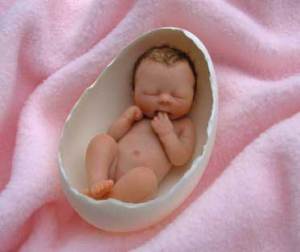
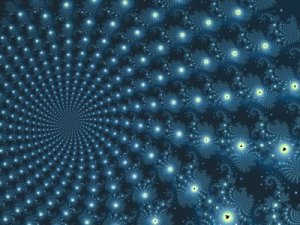 than what is represented by that terrible otherness of the psychopath that we feel we are no part of?
than what is represented by that terrible otherness of the psychopath that we feel we are no part of?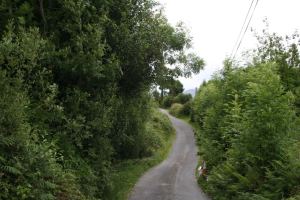
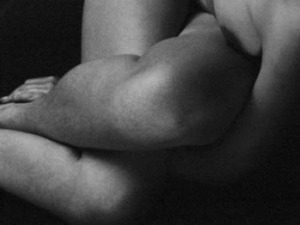

 S. Shamdasani, the editor of the RB, noted that Jung found mythological work both exciting and intoxicating. Jung understood mythological images as symbols of the universal life force (libido) depicting the movements and dynamics of the autonomous, archetypal psyche.
S. Shamdasani, the editor of the RB, noted that Jung found mythological work both exciting and intoxicating. Jung understood mythological images as symbols of the universal life force (libido) depicting the movements and dynamics of the autonomous, archetypal psyche.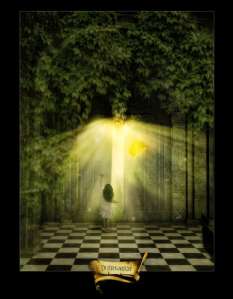 into another reality. A paradoxical situation, the image is you and is not you. You are the observer and the observed. A necessary duality has been created. Necessary because all creation depends on this duality and the forever shifting dance between the two opposing forces. A oneness has been torn asunder. It is in the liminal space in-between that new life can be born. In the context of self-reflection the new life can be a new insight, the possibility of a new pattern of experience.
into another reality. A paradoxical situation, the image is you and is not you. You are the observer and the observed. A necessary duality has been created. Necessary because all creation depends on this duality and the forever shifting dance between the two opposing forces. A oneness has been torn asunder. It is in the liminal space in-between that new life can be born. In the context of self-reflection the new life can be a new insight, the possibility of a new pattern of experience.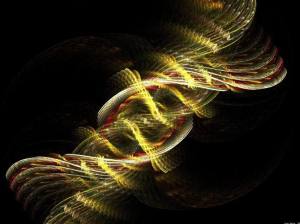 These two opposing forces are often referred to as masculine and feminine, but one must drop all preconceived notions about gender or sexuality. Each individual psyche, male or female, is made up of these energy strands, as is the objective, archetypal psyche. Yang and Yin are more neutral descriptions. Jung elicited the principles of Logos (yang, masculine, foresight, legislation, ordering, willful) and Eros (yin, feminine, receptive, related, moving, dissolving) out of his visionary meeting with Elijah and Salome. Jung writes: The way of life writhes like a serpent from right to left, from thinking to pleasure and from pleasure to thinking. Collectively and individually we are suffering an imbalance in this eternal dance that has favored the masculine principle. Where Logos rules order and persistence prevail, where Logos rules at the expense of Eros, it degenerates into dominance and abuse of power. In the individual this tendency can be associated to the sickness of the soul, known as the narcissistic personality. The problem of narcissism has been thought of as a characteristic of a dying culture. I can see this trajectory, unless psyche is irrigated by the flow of eros and balance is restored one more time again.
These two opposing forces are often referred to as masculine and feminine, but one must drop all preconceived notions about gender or sexuality. Each individual psyche, male or female, is made up of these energy strands, as is the objective, archetypal psyche. Yang and Yin are more neutral descriptions. Jung elicited the principles of Logos (yang, masculine, foresight, legislation, ordering, willful) and Eros (yin, feminine, receptive, related, moving, dissolving) out of his visionary meeting with Elijah and Salome. Jung writes: The way of life writhes like a serpent from right to left, from thinking to pleasure and from pleasure to thinking. Collectively and individually we are suffering an imbalance in this eternal dance that has favored the masculine principle. Where Logos rules order and persistence prevail, where Logos rules at the expense of Eros, it degenerates into dominance and abuse of power. In the individual this tendency can be associated to the sickness of the soul, known as the narcissistic personality. The problem of narcissism has been thought of as a characteristic of a dying culture. I can see this trajectory, unless psyche is irrigated by the flow of eros and balance is restored one more time again.